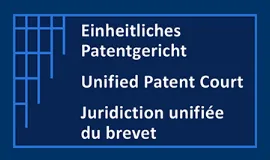No transparency for Mathys & Squire in Unified Patent Court test case
January 18, 2024
The Court of Appeal of the Unified Patent Court has refused as inadmissible applications by law firms Mathys & Squire and Bristows to intervene in an appeal concerning public access to documents filed with the Court.

In November Mathys & Squire applied to intervene in the Appeal on the basis that Court of Appeal’s decision was likely to be determinative of a separate application for access to documents that Mathys & Squire has filed before the UPC’s Central Division. Bristows likewise applied to intervene in December in view of a pending request that the firm had filed for access to documents at the UPC’s local division in the Hague.’
As Nicholas Fox, partner of Mathys & Squire explained on this blog: ‘We are looking to clarify the Unified Patent Court’s Rules of Procedure and in particular we are looking to establish a precedent that written pleadings and evidence filed with the court should be available on request unless there are good reasons for keeping such documents confidential.’
Direct and present interest
However, this attempt to improve the transparency of the operations of the Unified Patent Court has failed. In its ruling, the Court of Appeal writes:
'12. An interest in the result of the action within the meaning of R.313.1 RoP means a direct and present interest in the grant by the Court of the order or decision as sought by the party, whom the prospective intervener wishes to support and not an interest in relation to the pleas in law put forward. It is necessary to distinguish between prospective interveners establishing a direct interest in the ruling on the specific request sought by the supported party, and those who can establish only an indirect interest in the result of the case by reason of similarities between their situation and that of one of the parties. A similarity between two cases is not sufficient.
13. It may be that the outcome of this action before the Court of Appeal has an impact on the legal assessments that are to be made in the cases pending before the Munich Section of the Central Division and the Local Division The Hague. However, if it does, it will be because of the guiding effect of case-law alone. The applicants to intervene therefore are claiming only an indirect interest in the result of the case by reason of similarities between their situation and that of one of the parties to this case.
14. This means that the applicants have failed to establish a legal interest in the result of the action before the Court of Appeal. The applications to intervene are inadmissible in substance.’
In reaction, Mathys & Squire concludes: ‘The Court of Appeal’s order sets an important precedent. It means that interventions in proceedings at the UPC will only be allowed in narrowly-defined circumstances. In adopting this narrow interpretation, the UPC Court of Appeal has adhered closely to the practice of the CJEU, where possibilities for interventions by third parties are very limited.’
What comes next?
The Munich section of the central division has stayed Mathys & Squire’s application to access for documents pending the outcome of the Ocado and Autostore Appeal. ‘We therefore have to wait for the outcome of the Ocado and Autostore Appeal until our application for access to court documents will proceed further.
If the Court of Appeal delivers a decision which provides wide-ranging guidance on the interpretation of the UPC rules on public access to documents, with reasoning which is applicable to most circumstances, this may resolve our concerns about the Court’s current restrictive approach to public access to pleadings and evidence filed with the Court.’ (…)
But for now, ‘concerns about the transparency of court proceedings at the UPC persist.
The original request for access to the Ocado and Autostore documents was filed by a member of the public in August last year. Although the Court of Appeal was to hold oral proceedings in mid-February, the hearing has now been rescheduled for mid-March and hence any decision by the Court of Appeal is unlikely to issue much before April. This means that it will have taken over 6 months for the UPC to process what should be a simple administrative request for access to court documents.
According to the UPC’s case management system, 13 applications for access to court documents have been filed since the UPC opened in June. Two of those requests have been rejected, leaving 11 still pending. To date, none of the applications have resulted in members of the public having sight of evidence and pleadings filed with the court.'
You may also like















Patent Robot
This lack of transparency of the UPC should be considered contrary to its first goal (see page 1 of the Agreement): "the establishment of an internal market within the European Union characterised by the free movement of goods and services and the creation of a system ensuring that competition in the internal market is not distorted". In fact, the public must immediately know whether a European patent might be revoked, otherwise the "free movement of goods" would be impaired and the internal marked would be "distorted". There is absolutely no reason for a patent court (like a patent office) to keep its documents secret.
Patent Robot
The lack of transparency of the UPC seems also to be contrary to articles 45 and 52.1 UPCA: "45. The proceedings shall be open to the public unless the Court decides to make them confidential, to the extent necessary, in the interest of one of the parties or other affected persons, or in the general interest of justice or public order." "52.1 The proceedings before the Court shall consist of a written, an interim and an oral procedure, in accordance with the Rules of Procedure. All procedures shall be organized in a flexible and balanced manner." Therefore, also the written and interim procedures "shall be open to the public".